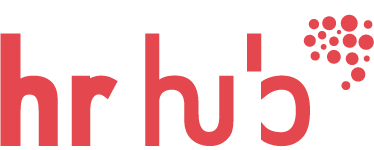HR Hub Learning - Let’s talk about Employee Experience
Last week we met again in an HR Hub Learning event to explore a theme that gained a lot of traction in the last few years - Employee Experience. Our guest, Clodagh Logue, Vice President, International HR at Fitbit, made an introduction to what Employee Experience is and answered a lot of questions about how we can improve it in our organizations.
Let’s dive in - the intro

As Jacob Morgan, a thought leader on EE explains employee experience is the combination of three distinct things that exist within any organization regardless of industry, size, and location: culture, technological and physical environment.
- By culture, we understand how employees feel when they are inside an organization, the vibe they get, the organizational structure, leadership style, compensation, and benefits, etc.
- The technological environment is the tools an employee needs to do their job, including the user interface, mobile devices, and desktop computers.
- The physical environment includes anything that can be seen, heard, touched, and tasted like the desks, chairs, art, and meals.

After explaining a bit about the factors involved in creating an employee experience, we dived in some processes and curiosities.
Here are some of the questions Clodagh answered
How do you empower leaders to take responsibility for their employees’ experience?
I think this is a tough challenge for us, HRs, at all stages of our careers. Our inclination is usually to say “I’m in a support function, I’m the one in charge of making things happen”, the desire is always there to help, to be there for people.
But I have learned that absolving people of some responsibilities, does them a great disservice. So you have to get over “it would be quicker if I’d do it” or “it would make me feel better”, because it deprives that manager, that leader of an experience that they would need to have, a practice that they should be engaged with, an opportunity to make an impact. Managers usually come to you because they are fearful or unskilled, but by empowering them, you also show you think they are trustworthy.
I had such an example recently, with a manager asking for my help in communicating with an employee about a sensitive issue. What I did was telling him you should do that. I think you should do it because you were there, you are the one who understands the context better, not me. I can help you prepare, but you are the one who should do it.

What measures should we take, as HR professionals in order to foster and engage an alumni community of former employees?
Firstly, if you are conducting any kind of exit interview, you are most likely asking if they would recommend your organization as a place to work. A high percentage might tell you they actually really liked to work in your organization, but here are all the reasons why I am leaving. If these factors would change, I would come back.
You should have this data. These are the people who are leaving us in good terms, they had good performance and they left us a door open. That’s your audience. Then you need to decide what type of relationship you want to have with this audience, how are you going to communicate with them. Do you want to have a Social Media platform to stay in touch, you want to physically bring them together in a social form from time to time, do you want to have a paid membership (for example in professional services roles).
In terms of measuring the impact, it’s easy - who comes back.
What’s the responsibility of the employee in shipping a great employee experience?
When we survey employees, they might have this perception that us the HR, together with the managers have now the burden of acting on all those points they bring up. What we can do, is bring those results back, create working groups, involving the employees to be a part of their own solution.
There are certain things that employees will not be able to influence, for sure, but I would be very surprised if there aren’t a myriad of things that they can change. Often the solution is within their reach, but sometimes they just need the permission and the empowerment to go after them.
You’ve talked about both the physical and technological environment. Which of them is most important and which one we can pick to start making the employee experience better?
I honestly haven’t come across someone saying this one or that one is more important. I don’t think you can separate them. It is my honest belief that doing really poorly in one can really undermine efforts in the other one.
There’s a good reason why companies start with culture because it is there whether you work on it or not. It starts to evolve right when you start hiring your first employees, through what people say or not say to each other, practices, interactions and so on. So you rarely start from scratch. You start with giving we have this culture, where do we want to be?
So with culture you start working with something, when it comes to the other two elements, you start building the environment from 0.
This being said, we went home with ideas, knowledge and excited to learn more about employee experience. We recommend you follow Jacob Morgan’s Podcast, Articles & Books.
See you next time, Hubber!
